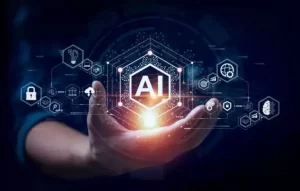AI unlikely to destroy most jobs, but clerical workers at risk, ILO says
A recent United Nations (U.N.) study indicates that Generative Artificial Intelligence (AI) is unlikely to completely replace individuals’ jobs but will instead automate specific tasks within those roles, enabling individuals to focus on other responsibilities. The study emphasizes, however, that clerical work could be substantially affected, potentially impacting female employment disproportionately due to women’s higher representation in this sector, particularly in more affluent nations.
The surge in interest surrounding Generative AI, particularly its applications in chatbots, has prompted concerns about potential job losses, similar to historical instances such as the introduction of the moving assembly line in the early 1900s and mainframe computers in the 1950s.
Nonetheless, the research conducted by the International Labour Organization underscores that “most jobs and industries are only partially exposed to automation and are thus more likely to be complemented rather than substituted by AI.”
In essence, the study highlights that the primary influence of this technology is likely to be enhancing work experiences. It identifies clerical work as the occupation most susceptible to the impact of Generative AI, which has the capacity to generate text, images, sounds, animations, 3D models, and other forms of data. Approximately a quarter of tasks within clerical work are highly prone to potential automation.
In contrast, most other professions, such as managerial and sales roles, have minimal exposure to automation, according to the study’s findings.
Despite these insights, the U.N. report cautions that the effects of Generative AI on affected workers could still be considerably challenging. The report conveys that policymakers should not interpret the study as a calming reassurance but rather as a call to action, urging them to formulate policies that effectively address the impending technological shifts.




































